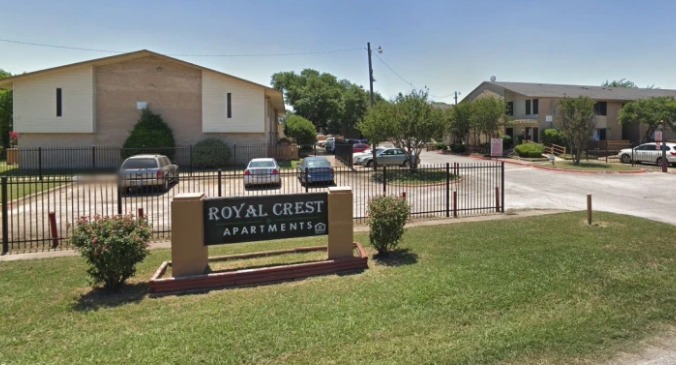Every year multifamily operators spend thousands of dollars hiring and training new staff. According to the 2007 National Apartment Survey of Compensation and Benefits Practices conducted by the National Multi- Housing Council, the typical management company faces a 43 percent employee turnover rate. However, this rate drops significantly among owners who measure employee satisfaction levels and implement strategic initiatives to retain the best employees.
Employee surveys offer staff an opportunity to anonymously share valuable insight about operations, work environments, company culture, benefits, and compensation. By recognizing and understanding these needs, an operator is better able to create and implement effective employee retention tactics. Policies and procedures can be easily developed or adjusted to create happier and more successful employees with minimal impact on company operations or revenue.
Communication facilitates retention
For the past two years, Lincoln Property Company, a residential and commercial real estate developer and manager, has distributed surveys to their employees in an effort to better gauge the impact of company operations and services on employees. By creating this communication channel, Lincoln hoped to gain actionable data to improve retention rates among their staff. By measuring employee perceptions and strategically adjusting policies and procedures, the company successfully reduced turnover by 5 percent from 2006 to 2007. Lincoln hopes to continue reducing turnover by utilizing the survey on an ongoing basis.
“Employee retention was the number one priority in measuring our staff’s perceptions,” said Scott Wilder, senior vice president for Lincoln. “Gaining insight into what they like and don’t like about the company helps us to be better employers.”
The survey results indicated several policies employees felt should be implemented or improved. For instance, feedback indicated interest in a company-wide maternity plan. In response to the request, Lincoln developed and implemented a program designed as an additional benefit to encourage employees to return to the company after maternity leave.
Employees also communicated the need to improve the company’s onsite living discount. Under the previous policy, staff living onsite received up to a 20 percent discount off the market rate. After reviewing its expenses compared to revenue from staff leases, Lincoln realized it could increase the discount for specific employees, with third-party (owner) approval, without causing a negative impact on NOI.
By significantly boosting the satisfaction of employees, it’s easy to understand how these incentives directly improved retention throughout the organization.
Prospects and residents measure staff performance
Prospects and residents measure customer service during every interaction with a community’s staff. So surveying these audiences can help operators identify an onsite employee’s needs and improve retention. Prospects and residents provide unique and unbiased insight into a leasing professional’s interpersonal skills, or the maintenance staff’s responsiveness. By utilizing these audiences, operators often gain feedback regarding job performance which would normally be difficult to assess. The information secured from prospects and residents can help an operator develop and implement effective retention initiatives to improve onsite staff’s perceptions of their jobs.
In November 2006, Camden Property Trust engaged a third-party research firm to gather competitive intelligence through prospect and resident surveys. As part of the survey program, Camden was also able to measure onsite staff performance using the unbiased feedback from these audiences. The responses regarding personal experiences with onsite staff can be used to identify employees who are excelling in their position, as well as those in need of greater training. Armed with the performance data, Camden included service scores in its performance based incentives to improve its employee retention strategies.
The current program measures how a leasing consultant interacts with a resident or prospect, level of customer service delivered and how the resident or prospect perceived the customer service. Prospects are surveyed after each visit and residents are surveyed twice a year on a variety of topics. Based on the score received, onsite staff may be directed to attend additional training programs through Camden’s university to learn additional professional development skills to increase their efficiency and effectiveness throughout the sales process. Camden offers its staff training classes in a variety of disciplines to provide or enhance fundamental techniques to rent apartments, or improve telephone sales calls. Utilizing these types of trainings show the company has a vested interest in its employees and is willing to put the time in to help them grow.
“If an employee doesn’t understand what isn’t working, eventually the person may just get frustrated and leave our company,” said John Selindh, vice president of marketing for Camden. “If we can coach them on specific areas to help them perform better, they’re going to be happier and more successful in their position. Our employees are confident we’ll do anything we can to help them succeed.”
One of the most important training Camden offers is individual coaching allowing a community manager to work directly with a leasing consultant. This ongoing training provides the leasing consultant with specific coaching in areas referenced on the survey. The community manager is able to speed up the training process and create efficiencies exactly where needed. Leasing consultants benefit from the training by receiving increased commissions and lease renewals.
“Individual coaching enables our team to address specific comments a leasing consultant has received on the surveys,” said Selindh. “By coaching one-on-one, we can continuously work with the employee to ensure both the community’s and individual’s needs are met.”
Ongoing surveys can also substantiate the progress an employee has made from coaching and more formal training programs.
Quality leasing consultants establish a relationship with a resident.
The impact of these relationships on a company is invaluable. A trusted leasing consultant can influence a resident’s lease renewal decision, encourage friend referrals and improve brand loyalty when a resident leaves a community.
“Through our resident surveys, we have seen the aggregate communities with better employee retention practices have higher scores on surveys,” said Selindh. “Our residents like to build relationships with community staff and have a consistent face to talk to. The longer employees are at a community, the more they understand the residents’ needs and the better service they deliver.”
Better understanding creates improved bottom line
Incorporating effective employee retention strategies, such as measuring employee, prospect and resident perceptions, decreases turnover, reduces recruiting and training costs and increases a community’s profitability. Small operational and procedural changes can dramatically affect employee perceptions, effectively improving loyalty and dedication to the company. Ongoing employee surveys helps owner/operators better understand the components of building and maintaining a staff of successful and quality employees. The best staff enhances a prospect’s or resident’s experience and generates greater potential for a community’s success in the marketplace.
Author: Joseph Batdorf
















